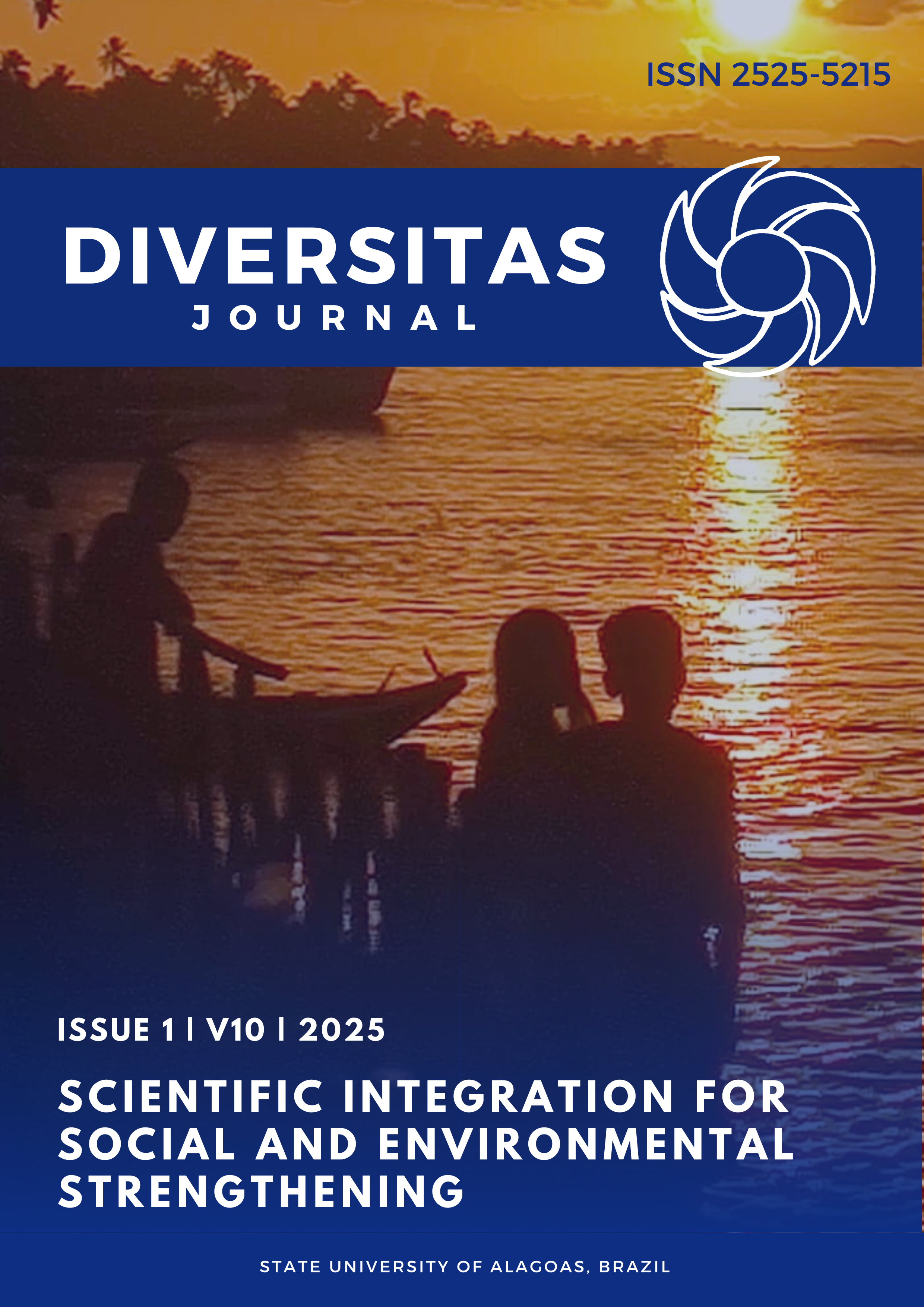Gypsy childhoods in a Municipal Early Childhood Education Center in Carneiros/AL
DOI:
https://doi.org/10.48017/dj.v10i1.3204Keywords:
Childhood, Gypsy Children, CurriculumAbstract
Gypsy children are subjects of rights, producers of culture and knowledge, often subordinated by colonizing processes in the ways of being children. They play a fundamental role in strengthening the gypsy identity and in the continuity of traditions. Therefore, the objective of this study is to present some legal and practical analyses of a Municipal Early Childhood Education Center in the municipality of Carneiros/AL, identifying what is established by the Municipal Education Plan (PME-2015-2025) and the Political Pedagogical Project (2023) on the education of gypsy children. The methodology adopted is qualitative, through bibliographic and documentary research. The analyses indicate that the municipality of Carneiros/AL, especially the CMEI, brings significant advances to the Early Childhood Education stage, by valuing the history and culture of the gypsy community in the school curriculum, giving legitimacy to the appreciation, respect, and identity belonging of gypsy children, combined with democratic, plural and inclusive educational practices, with the participation of the gypsy community.
Metrics
References
Abramowicz, A. (2011). A pesquisa com crianças em infâncias e a sociologia da infância. In:,
Faria, A. L. G. de, Finco, D. (orgs.), Sociologia da infância no Brasil. (pp. 17-36 ).Autores Associados.
Azevedo, L. S., Cardoso, M. C. (2012). Vida de criança cigana: O brincar no seu processo de escolarização. Saberes em Perspectiva, 2012, p.13-27.https://www.scielo.br/j/pcp/a/C3LS3VRYZ6h9JTsvrhrFQcC/?lang=pt&format=pdf.
Bonomo,M., Cardoso, G. K. A. (2019). Infância Calin: Socialização Étnica e Identidade Social entre Crianças Ciganas. Psicologia: Ciência e Profissão, 2019 v. 39 ,p.67-84. https://www.scielo.br/j/pcp/a/C3LS3VRYZ6h9JTsvrhrFQcC/?lang=pt&format=pdf.
Brasil. Lei de Diretrizes e Bases da Educação Nacional (1996). Lei Nº 9394, 20 de dezembro de 1996. Disponível em: https://www.planalto.gov.br/ccivil_03/Leis/L9394.htm.
Brasil. Ciganos – Documento orientador para os sistemas de ensino. (2014). http://www.seppir.gov.br/comunidades_tradicionais/copy_of_secadi_ci ganos_documento_orientador_para_sistemas_ensino.pdf.
Carneiro. Plano Municipal de Educação (2015).
Carneiro. Projeto Político Pedagógico do Centro Municipal de Educação Infantil Priscilla Rodrigues dos Anjos Silva (2023).
Kramer, S. (2006). As Crianças de 0 a 6 anos nas Políticas Educacionais no Brasil:Educação Infantil e/é fundamental. Revista Educação e Sociedade, Campinas, vol. 27, n. 96 -Especial p. 797-818,out. 2006. http://www.cedes.unicamp.br.
Moonen, Franz. (2012). Anticiganismo e políticas ciganas na Europa e no Brasil. Núcleo de Estudos Ciganos. (1ª ed.) .. https://www.amsk.org.br/imagem/pdf/FMO_2013_PolíticasCiganasBrasilEuropa.pdf
Moreira, A. F., Silva, T. T. da (Orgs) (2005). Currículo, cultura e sociedade. (3. ed.).Cortez.
Oldfarb, M. P. L., Monteiro, E. do N. J. (2017). A infância Calon: Notas sobre o “ser criança” entre os ciganos no Vale do Mamanguape – Paraíba/Brasil. Fragmentos de Cultura, Goiânia, v. 27, n. 1, p. 19-29, jan./mar. 2017. https://seer.pucgoias.edu.br/index.php/fragmentos/article/view/5445/3034.
Pagni, P. A.(2010). Um lugar para as experiências e suas linguagens entre os saberes e práticas escolares: pensar a infância e o acontecimento na práxis educativa. In:, Pagni, P. A.; Gelamo,R. P. (orgs.). Experiência, Educação e Contemporaneidade.(pp. 15-33). Cultura Acadêmica editora.
Rizzini, I. O século perdido: raízes históricas das políticas públicas para infância no Brasil. (2011).(3 ed.).Cortez.
Sarmento, M. J.(2001). A globalização e a infância: impactos na condição social e na escolaridade. In:, Garcia, R. L., Filho, A. L. (orgs.). Em defesa da educação infantil. (pp. 13-28). DPA editora.
Souza, E. do N. (2023). Fazer família e ser parente: tessituras sobre famílias e parentes entre ciganos calon. Civitas 23: 1-11, jan.-dez. 2023.https://www.scielo.br/j/civitas/a/hvHkhFHTqFHgYHJvN4p6N7f/.
Downloads
Published
How to Cite
Issue
Section
License
Copyright (c) 2025 Jackeline dos Santos Silva, Karla de Oliveira Santos

This work is licensed under a Creative Commons Attribution 4.0 International License.
The Diversitas Journal expresses that the articles are the sole responsibility of the Authors, who are familiar with Brazilian and international legislation.
Articles are peer-reviewed and care should be taken to warn of the possible incidence of plagiarism. However, plagiarism is an indisputable action by the authors.
The violation of copyright is a crime, provided for in article 184 of the Brazilian Penal Code: “Art. 184 Violating copyright and related rights: Penalty - detention, from 3 (three) months to 1 (one) year, or fine. § 1 If the violation consists of total or partial reproduction, for the purpose of direct or indirect profit, by any means or process, of intellectual work, interpretation, performance or phonogram, without the express authorization of the author, the performer, the producer , as the case may be, or whoever represents them: Penalty - imprisonment, from 2 (two) to 4 (four) years, and a fine. ”


















